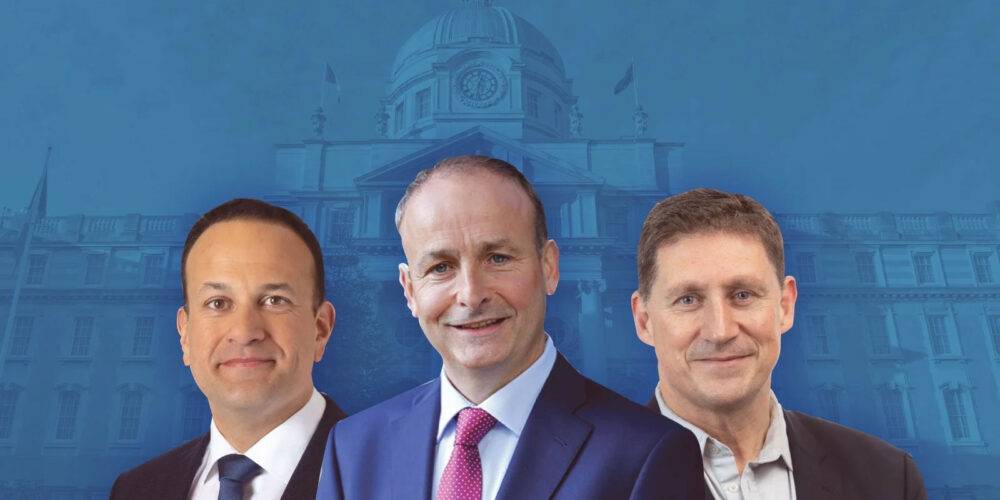So, after months of shadow-boxing and pretend negotiations, three parties—Fianna Fáil, Fine Gael, and the Green Party—have eventually tied the knot and will set up house together. They have been leading the public on a merry dance, in the pretence that they had worked hard to “overcome major obstacles,” etc. The press dutifully recorded the “tensions” and “difficulties” over the last few months.
Finally, all the parties involved showed great “maturity,” and in the “national interest” Fianna Fáil and Fine Gael set aside their historical differences, stepped up to the mark, and formed a government, with the Green Party giving the pretence that this was a new departure and a complete break from the past.
But the policies will be the same: to give priority to the interests of the market and big business, both national and transnational; tax cuts for the wealthy and professional classes; and deeper involvement in EU military strategies and adventurism, and Shannon Airport still used as a staging-post for US and NATO wars of aggression.
There will be a further erosion of workers’ rights, while precarious employment and zero-hour contracts will remain central factors in the lives of hundreds of thousands of workers, mainly young people and women.
While there may be a brief honeymoon period to get this three-party coalition bedded in, there will be little change in direction on economic and social policies. The Green Party will provide the political cover and a greenwash to mask further attacks on workers and their families.
The building of additional “social and affordable” housing is no different from what was proposed by the outgoing single-party government of Fine Gael. The priority will be to strengthen the position of private builders and property speculators, and private and corporate landlords. The provision of public housing at an affordable rent will never be allowed to compete with private rent speculation.
Public lands will be given away, on the promise that a small number of social and affordable homes will be built. The situation is made worse by the recent decision by AIB not to approve mortgages or take into consideration income derived from welfare payments and to actively reject someone whose employment they consider precarious. This can only be overcome by a massive subsidy from the state in relation to who qualifies for “affordable housing,” so facilitating a huge transfer of public wealth to banks and builders.
The same will happen in the sphere of public health. There will be much talk of increased and more targeted investment in the public system; but in reality the provision of private health and private health insurance will be the cornerstone of state policy. The state will push more public patients through the private health system, paying exorbitant premiums to corporate medical interests.
The treatment of all the nurses and doctors who returned home from abroad to help during the Covid crisis and were then told to stand down shows that the government has little interest in expanding the public health system.
The same goes for the “green agenda” and a reduction in carbon emission: these are all aspirational and will be put off until the next government. The powerful corporate farming interests and the agrifood industries still decide agricultural policy—certainly not family farmers. They may well be thrown under the bus as a sacrifice to keep the Green Party on board.
The strategy since the outcome of the last general election has been to control and corral the people’s desire for change into safe blind alleys and institutional control.
Now is the time for people to begin to mobilise, to push forward their agenda and not allow the powerful economic and hence political forces to decide the future of our country. Working people voted for change through the ballot box; it cannot be realised by simply allowing political and economic struggle to be mediated through state institutions.
What will decidedly change the political conditions and force the necessary deep economic and social change is for working people to mobilise to advance our own interests.
The challenge for the left and the trade union movement is to mobilise the people on clear goals: on universal public housing built by a national building company, a single-tier, universally free public health system, a strategy for creating jobs, and the control of capital to ensure targeted investment to meet the people’s needs and not for profit or speculative purposes.
Time to put working people first!






